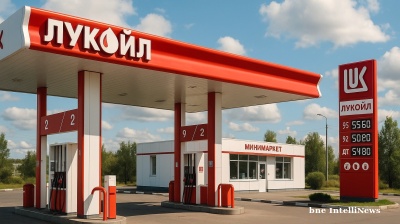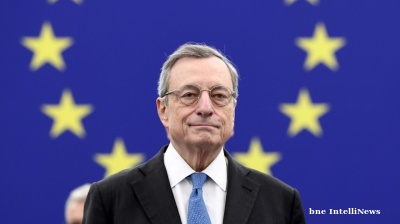Albania’s fast-growing tourism sector risks being undermined by an influx of mass-market visitors driven by bargain prices and social media trends, unless the country pivots to higher-quality, sustainable tourism, the head of the Albanian Tour Operators Association (ATOA) has warned.
“Mass tourism is not good even for big countries, let alone small countries like Albania,” Kliton Gërxhani told bne IntelliNews in an interview. “Our population is 3mn, and we are serving 12mn tourists, which is four times the number … We don’t have the capacity, the infrastructure or the human resources [for mass tourism].”
Tourism has surged in the Balkan state since the COVID-19 pandemic, when Albania’s flexible entry rules helped draw in visitors unable to travel elsewhere. Government incentives for investors have also attracted global hotel chains to one of the last remaining Mediterranean coastlines open to development.
The arrival of major chains was an important moment for Albania to gain international interest and marketing attention. Another turning point was when low-cost airlines Wizz Air, Ryanair and easyJet further expanded access by basing aircraft at Tirana International Airport, slashing prices and helping the Albanian capital overtake Belgrade as a regional air hub. Previously, flights in and out of Tirana International Airport — until recently the country’s only operational international airport — had been prohibitively expensive for many holidaymakers.
These changes brought large numbers of tourists to the country, which previously mainly received cultural tourists on group tours.
But Gërxhani warned that relying on volume-based tourism is unsustainable. “You need volume to be competitive on price. You need a big number of hotels, a big number of rooms. We don’t have the capacity to compete with Turkey, Italy or Spain [on volume], so I think we should focus towards the medium and upper market,” he said.
Instagram fame
The rapid rise in visitor numbers has brought Albania newfound fame as a Mediterranean beach destination, a reputation amplified on Instagram, TikTok and other social media platforms.
But Gërxhani points out that this new wave of visitors brings relatively little to the country economically. “There are a lot of tourists going into protected areas just for an Instagram photo. They don’t pay a penny, they leave nothing behind. They stay in AirBnBs and consume in supermarkets, which are the ones that profit the most,” he said.
Much of this new traffic bypasses hotels and tour operators, heading instead on short-term rentals and seeking out experiences through social media. “Hotels, restaurants and tour operators are suffering. Business is done informally and through social media … at the end of the day nobody is profiting except a few people who don’t even pay taxes.”
Selling authenticity
Instead of chasing records, Albania should showcase its unique cultural and natural heritage, according to Gërxhani.
“We are part of the Mediterranean. We are one of the oldest nations in this area with a very long and rich history,” he said, pointing to Albania’s advantages as a holiday destination.
“An excavation near Lake Ohrid recently revealed an 8,000 year old settlement, which is the oldest in Europe. We were at the crossroads for the big powers from East and West. Romans, Byzantines, Ottomans and many others came through this area, and all of those civilisations left their traces.
“From a natural point of view, we are blessed with high mountains, fields and rivers — the Vjosa is the last virgin river in Europe. Our language is unique, and only spoken her and in Kosovo. Our people are very warm and hospitable. This is what we show the rest of the world.”
This means there is plenty for tourists beyond the country’s sunny beaches and cheap beer.
“We have to show the authentic Albania to tourists,” said Gërxhani. “Tourists that come just for the beach do not care about authenticity, they just come for a piece of sand and cheap prices. Tourists who come for Albania itself want authentic things. They want to see villagers, shepherds, the real Albania. Those are the tourists we should target.”
Government investment in road and rail infrastructure could help spread the benefits of tourism beyond the crowded coast. Plans for marinas and golf courses also aim to position Albania in the luxury segment. Investments are already ongoing into transport infrastructure: Albania is getting several new airports, roads are being reconstructed and the long-neglected rail network is also getting an overhaul.
Long-term vision
Gërxhani argued that sustainable tourism requires a long-term vision. “The government sometimes says we have to break the records, go from 10mn to 20mn to 30mn tourists and to catch up with Greece and Croatia, which is irrational. We don’t need volumes. We need to focus on quality tourism,” he said.
“To build up a quality product, you need to invest in the long term. Unfortunately, that doesn’t go well with politics. Politicians think in four-year terms. But our country belongs to our children and our grandchildren – not to short-term votes.”
He welcomed steps to attract global hotel brands but cautioned that Albania must be prepared to support them with skilled staff and local supply chains. “New (brand) hotels are just the tip of the iceberg. It’s not enough to have a new brand, you need to feed them with human resources, provide them with food and everything they need at their resorts — fruit, vegetables, jams, honeys, for example. If we are not ready, they will import everything and our economy will not benefit,” he said.
A fragile success
Despite record-breaking numbers, signs of strain are emerging. Growth in arrivals has slowed in 2025, which Gërxhani sees as a warning. “This year the growth was not at the same level,” he said. “We aren’t treading a new path. Spain, Italy and France went on the same path before us. It’s only a matter of time before you get stagnation.”
He called for closer cooperation between government, tour operators and investors. “At this stage the government is taking a honeymoon, enjoying the numbers and all the media attention. But we need to sit together with everyone involved [in tourism] and discuss it freely. We are not going there to blame anybody. We should be humble and invite each other – it is our country, our future.”
For Gërxhani, the way forward is developing higher end tourist offerings. “Everybody who comes for the price will leave for the price,” he said. “It’s good to have these numbers, and the majority of visitors talk about Albania in a positive way, but we have to build up the medium and upper markets, like every other country this size has done. It’s a matter of scale: you cannot be big if you are not big.”
Albania’s tourism boom has brought global attention and valuable investment to a country long overlooked by mainstream travellers. But sustaining that success will require more than record-breaking visitor numbers. As Gërxhani warns, without a pivot toward higher-quality, better-regulated tourism, Albania risks repeating the mistakes of its neighbours — overcrowded coastlines and limited local benefit. Whether Albania can avoid that fate will depend on how quickly it replaces short-term gains with long-term strategy.
Features

Russia tax service targets Russian accounts in UAE
The Russian Federal Tax Service (FTS) has ramped up its scrutiny of Russian nationals holding accounts in the United Arab Emirates, following the effective implementation of automatic tax information exchange between the two countries.

COMMENT: Taiwan’s equality paradox - when “progressive” doesn’t mean equal
Taiwan’s insistence that women should have access to every privilege of citizenship - from political office to professional advancement - but not its responsibilities, undermines the moral foundation of its democracy.

Russian e-commerce giant Wildberries goes on a mysterious M&A spree
Russian e-commerce giant goes on M&A spree Almost a year after the controversial merger with a leading outdoor advertising firm, Russia’s leading e-commerce site Wildberries is indulging in a fresh bout of eyebrow raising deals.

US expands oil sanctions on Russia
US President Donald Trump imposed his first sanctions on Russia’s two largest oil companies on October 22, the state-owned Rosneft and the privately-owned Lukoil in the latest flip flop by the US president.




